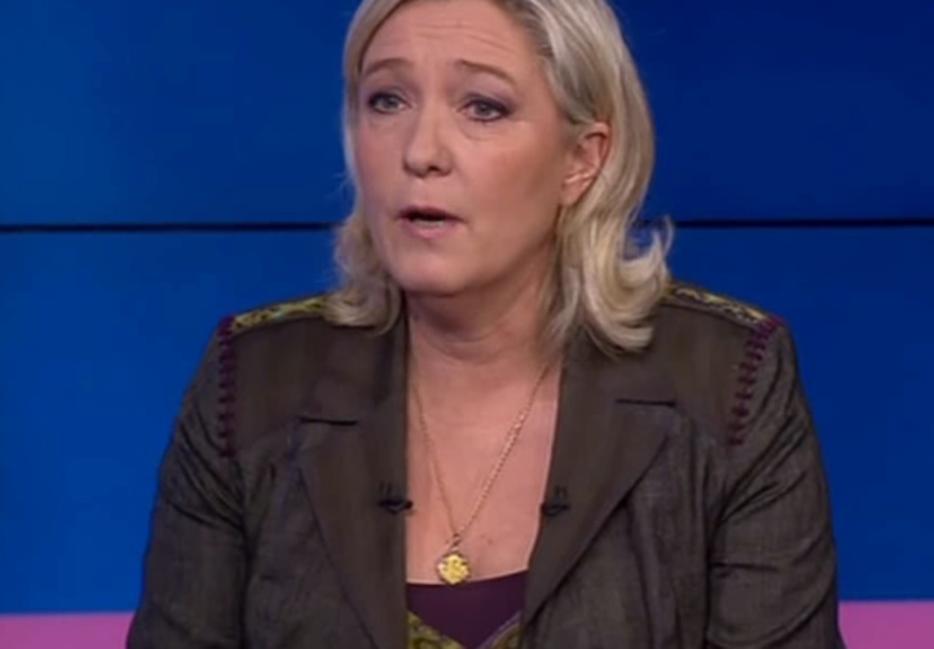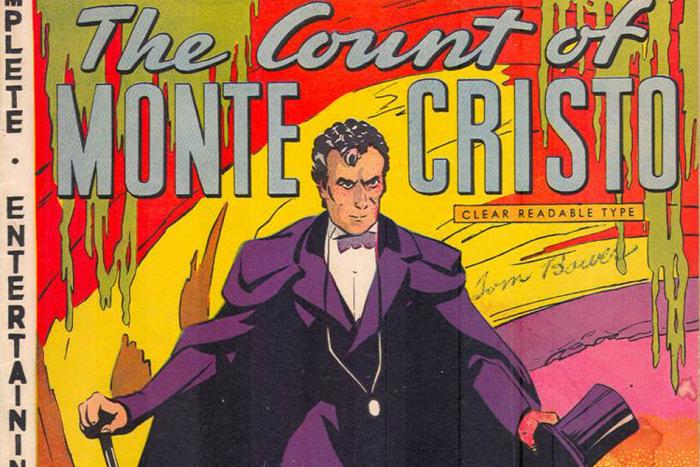Europe seems so homey. It's the safe place to go for a vacation, the place where we know the history, speak a couple of the languages. We hang their old art in our bathrooms. Those impressionists knew how to paint a lily pad.
So I think we may be a little more liable than we should be to write off these recent European elections as a blip, some pesky European eructation they'll get over as soon as someone burps them. These are our people, after all—these English, these French, these Hungarians, these Greeks. The National Front couldn't really have come in first place in France, or UKIP in the UK. I was just in Nord-Pas de Calais a month or so ago; the people seemed perfectly lovely, very hospitable. And yet, 35 percent of them voted for Marine Le Pen, who sounds reasonable when she talks about stemming illegal immigration, as people do, until they start talking about legal immigration, which she does, too. She doesn't like it. She wants France for the French. She wants it quite a lot. And 34 percent of those lovely people in Pas de Calais do as well.
UKIP was a joke on British TV, a straw boogeyman so comfortably off the presumed political spectrum the jokes weren't even vitriolic—it was as if they were talking about Oswald Mosley. On Tuesday, they got 27.5 percent of the vote, a significant lead of more than 2 percent over Labour, and more than 3.5 percent ahead of the sitting Conservatives. It's the first time in 108 years that any nationwide election has been won by anyone other than Labour or the Conservatives. The National Front received 26 percent of the vote nationwide in France. In Hungary, the governing party is already fairly right wing, and it comfortably won the European elections, but the Jobbik party came in second; in 2012, its deputy leader in parliament asked for a list to be drawn up of all the Jews in Hungary as possible security risks. Last time I checked, he was still deputy leader. Another member asked her compatriots to prepare for an armed conflict with the Jews. They're also not fans of immigrants. Hungary for the Hungarians.
The anti-Semitism rankles most viscerally, of course. The quenelle has been spreading across France and much of Western Europe for a few years now, and the more authorities try to ban it and its main propagator, Mbala Mbala Dieudonné, the more widespread it becomes. At first, it was limited to YouTube peacocking. Then people started hopping in front of TV cameras at sporting events to do it. And this, from Tablet this week:
Alain Soral went as far as Berlin to have his photo taken while performing the gesture on the roof of the Shoah Museum. Two youngsters performed it in the ruins of Oradour-sur-Glane, the small village in the north of France where, during the war, more than 60 women and children were locked up in a church and burned alive by an SS squadron. In Toulouse, someone performed it in front of the Otzar-Hatora Jewish school, the school where on March 19, 2012, less than two years before, Mohamed Merah had shot to death three children and a teacher because they were Jews.
Dieudonné and others say it's about freedom of expression. And anti-immigrant policies, whether from UKIP or Jobbik, say it’s about economics. For the politicians, on some level, it might be. But it's not for the people.
Because, as these elections have shown, European gentiles don't just hate the Jews: they hate each other. And Africans. And Muslims. And people from poorer countries. And people from richer countries. Gideon Rachman in theFinancial Times this week made the case that the election results were not, in fact, what they appeared to be:
To argue that the weekend’s vote was actually about immigration or the economy—and not about Europe—is to miss the point. Two of the basic functions of the nation state have traditionally been to control borders and national finances. Both functions have been largely ceded to the EU—particularly if, like France, you are a member of the Schengen border-free zone and the European single currency.
Though I sort of hope he's right in his positivist FT way, I fear Europe may be as much a scapegoat for the xenophobia as xenophobia is for Europe.
Sure, the economy sucks: there's 27 percent unemployment in Greece, 25 percent in Spain (where radical left parties won on Tuesday), 17 percent in Hungary, 10 percent in France and 7 percent in the UK. But the fact that, in the worst economic downturn since the 1930s, the European reaction seems to be precisely the same as it was then implies that some basic things haven't changed. It's not the same people, after all, who are leaping back up on the anti-Semitic, anti-immigrant bandwagon. It's their children, grandchildren, and great-grandchildren.
There has been peace among Western European countries since 1945. Books have been written, speeches made, treaties signed, and trade deals negotiated. The UN was established, and the EU was founded and has spread, with more applicants than they can handle. It's made us think, all this sunshine, that the Second World War was an aberration—the fault of some seriously evil men who snatched the reins and ran off with the continent before they were brought to heel. But it wasn't. It's the period since that was.
Gore Vidal wrote a book in the early part of the last decade called Perpetual War for Perpetual Peace, and in the middle listed every military conflict the US had been engaged in since the end of WWII. It ran 20 pages. It was a shocking list to read. But it shouldn't have been. There's an exceptionalism that's grown up around the Second World War in this part of the world, that it was sui generis—but in Nord-Pas de Calais, they know better. There are still monuments up to the Franco-Prussian War of 1870-71. I spoke to a man whose grandparents told him stories of people being killed in the streets in front of their house by the Prussians. Before that there was the Crimean War, and 1848 wars of independence, the Napoleonic wars, Kościuszko, the Nine Years' War, the Eighty Years' War, the Hundred Years' War...
We know about all these from history, of course. But what we seem not to get is that it's not history, and after a few decades of good behaviour, Europe seems once again to be reverting to type, the traditional fault lines being thrown up to the surface by the sorts of things that have always thrown them up: economic hardship and leaders who capture the continually disaffected zeitgeist.
I hope Crimea is not a sign of things to come, that Jobbik's ideas about annexing the bits of other countries next to them are just rhetoric, that all those borders sloppily drawn up by political aides in Paris in 1919 don't start crashing down into a sea of irredentism.
Europe, the body headquartered in Brussels, is a behemoth. It's tried to navigate through all the jagged historical edges that separate the nations and peoples it's trying to unite, and it's been successful for the most part, at least on the surface. Tuesday's elections may well turn out to be the last gasp of an old way of thinking—the dying dribbles of a continent that shares a currency, has no border controls, and sets up and abides by rules governing hundreds of aspects of everyday personal and corporate life coming to terms with itself. Maybe this is the last we'll hear of it, and Europe will continue to slowly melt into one amorphous mass. I'm not sure that would be a good thing, but it could very well be a peaceful thing.
But just now, Europe is not a happy place, Europeans not a tolerant people. Those killings in Brussels could be an anomaly, the sort of horrible thing that happens from time to time, and could happen anywhere. Or it could be the next step, an escalation, an actualization of the thinking behind all those quenelles. And if that's the case, and the recent votes were another expression of it, we may have to get used to the idea of the kind of disturbing geopolitical news we're accustomed to elsewhere starting to filter in from Europe as well.






